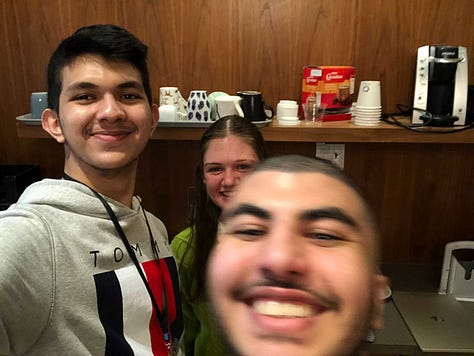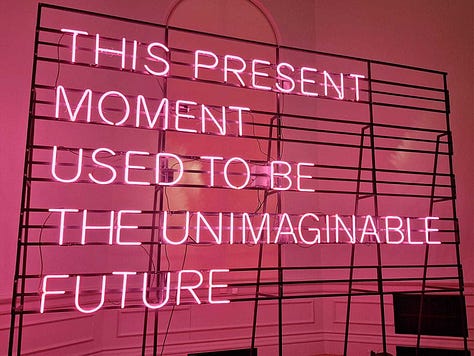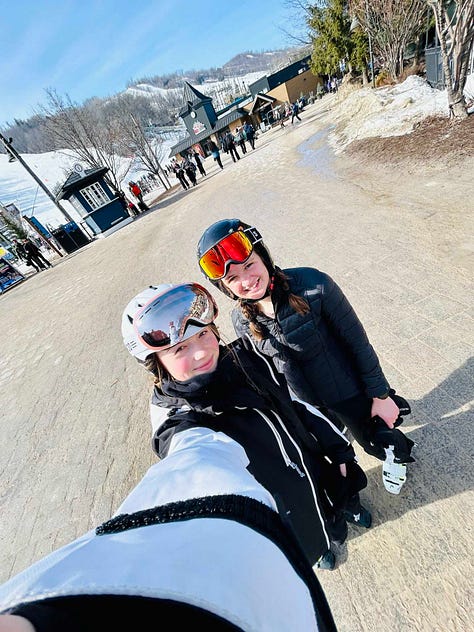🔋Hey, I’m Sasha :)
I’m a 16 year old based near Toronto currently obsessed with battery tech. I’m curious about how we can leverage batteries for more than just powering an EV or cell phones for a few years. In the process of building a battery management system that can estimate battery state-of health. Outside of this, I love to go running and biking, especially as the weather gets warmer. Welcome to the past few months of my life :D
⚡Highlights:
got a 1.3k grant from Emergent Ventures
learned the basics of C in 3 weeks
shadowed a startup in Edmonton
pitched FusionFlow, the Ebay for fusion, at the WAC sprint with
andinterviewed a battery manufacturer at Tesla and the CTO of a hydrogen startup
Learning how to learn: understanding the basics of a low-level programming language in 3 weeks 💻
1 year ago, I was working in material science.
6 months ago, I was working on second-life batteries.
3 months ago, I decided to work on battery management systems.
Battery management systems are basically software for batteries. And I had no experience in software.
I built an Extended Kalman Filter, which is a mathematical model for predicting the future position (state) of something. Because it’s an algorithm, just by understanding the math I had a pretty good idea of what the code should look like. And chatGPT could help me with the rest.
Two problems I found with this approach:
it took forever to debug the code.
this would only work for pure algorithms, which would severely limit what I could do with code.
My current project is in battery management systems, and that involves a lot of firmware (low level software that is interfacing directly with the hardware). So, I needed a low-level programming language.
I decided to learn C. The language that most of the Mac and Windows OS is built upon. And I was planning to do it in 3 weeks.
Most people will tell you that it takes years to learn how to code. And most people start with python, which is much higher-level, and so it’s easier. But, you can’t act like most people and expect outsized results ;)
Obviously, I’m not a pro at C. But I do know the basic fundamentals and syntax. And I learned it much faster than most have.
Here’s what worked:
Create systems that force you to hit your desired goal.
I did a Codecademy course. I liked it because you can’t access the next exercise until you complete the current one. More often then not, this meant coding something from scratch. Seeing as my goal was to actually code something, this was perfect. It was unlikely I’d complete the course without learning something.
Explain it to other people.
I made a twitter thread as I was going through the course. This was a way for me to practice the Feynman technique to identify gaps in my own knowledge. If you can’t explain something to a 5 year old, do you really understand it?
Have a clear why.
Learning is about hitting blockers at high speeds, and how fast you can iterate to overcome those blockers. Sometimes, it’s hard. But if you know very clearly why you care so much about learning this thing, you’ll be able to overcome these blockers much quicker.
Startup culture and skiing in Edmonton 🗻
At the start of February, I had a 5 day break from school. It just so happened that the turnover days after exams spilled into the weekend. Perfect opportunity to do something fun :)
The day after I wrote my last exam, I flew out to Edmonton. First time on the Canadian West coast!
First off, absolutely stunning.
Secondly, I was lucky enough to shadow a startup while I was there.
It’s called Lantern, and they use AI to help companies innovate faster. Digital leadership.
I was more interested in the culture though.
The first night I was there, about 8 of us went to a nearby pub called The Underground. The conversation topics ranged from game theory to skiing to speed cubing. (Did you know the fastest cuber can solve it in 3.13 seconds???)
When interesting people get together, interesting things happen. And a startup is one of the best places to find interesting people. Even the office was very homey, with couches and arcade games in addition to the glass-walled offices.
Experiencing startup culture, even just for a few days, has made me even more determined to land an internship at one this summer. More to come on that soon hopefully.
After two days at the startup, we drove to Jasper, to go skiing. I’ve always had a fascination with mountains, and they definitely lived up to the hype.
Skiing is fun because it is inherently risky - there’s an adrenaline rush. And if you don’t take risks while skiing, I don’t think you’ll have as much fun.
Sometimes, it’s better to say “screw it” and just go for it.
On being spontaneous 🚀
The most important distinction I’ve heard when it comes to risk is the difference between risk and uncertainty.
With risks, there is a clear downside.
With uncertainty, you simply don’t know what will happen.
Example: for me to try to do a backflip when I can barely do a jump is risky. If I mess up (highly likely), I could get seriously injured.
But, it’s not really risky for me to try a slightly bigger jump. There’s just uncertainty on whether I’ll land it or not. And worst case, I don’t land it. But I could just try again. The chance I’ll get seriously injured is much much smaller.
Spontaneity can be reduced to this distinction.
If we think of it as a spectrum, there are 2 extremes.
The people who say yes to everything are the ones who take the risks. And sometimes, the risks are stupid, because the downside is so much bigger than the upside.
But on the other hand, the people who say no to everything likely spend most of their time inside their comfort zone. And so they won’t grow as quickly.
In the middle lies the people who say yes to uncertainty.
They won’t do the stupid things, but they still get the benefits of spontaneity.
Keeping with this theme, I attended the WAC Sprint hackathon along with
and .The hackathon itself was amazing. The venue, UCC, is stunning, and there were some really cool people there. For example, Navid Nathoo, and Harry Ghandi. We created the Ebay for Fusion research. Curious to learn more? Check out our one pager.
After the hackathon is where spontaneity came into play.
With some other TKS Activates, we went to play basketball. Initially I wasn’t going to play. But it seems that any time I go past my initial refusal to try something, I have so much more fun.
After that, we drove around Toronto until we found somewhere to get dinner. No plan whatsoever. But it turned out to be fantastic - great conversations and one of the most fun car rides in a while.
The takeaway here is this:
If there is no obvious, highly likely downside, say yes.
Interviewing a battery manufacturer at Telsa and the CTO of a hydrogen startup 🎙️
and I interviewed 2 more guests for our podcast.Some quick background: Mia is the CTO of Lumidt, a hydrogen startup based in San Francisco. And Miranda is working on 4680 cell production at Tesla.
Here are the main takeaways from the conversations:
Mia Rath: Hydrogen, Hardware, and Building a Seed Stage Startup in the Heart of SF
focus on the needle movers: don’t get caught up in the little things
hydrogen has more potential for grid scale storage than for small-scale products
start with the vision: your best case scenario. Start with why
try to design things in a way that they’re easy to iterate upon, because you will need to iterate
Check out the full episode here!
Miranda Nover: Battery Manufacturing at Tesla and First Principles Thinking
it is probably easier than you think to get exposure at your local college, especially if you don’t live in a place where there are a lot of tech events
internalize the idea that you can do anything and that will unlock so much potential
one of the barriers to first principles thinking is a comfort with the status quo
big organizations that want to move fast have to take on more technical risk, which is something most companies aren’t willing to do because of the risk to their assets
Listen to the rest of the episode here!
📸In pictures:






Next up:
skiing in Switzerland with
Creating a consulting deck for Shell alongside TKS
Estimating battery state of charge in order to estimate state of health - aiming to have some content :)
becoming more technical ⚙️in C and in Arduino projects
Thanks so much for reading! If there’s anyone interesting you think I should talk to, let me know. Always looking for a good conversation :)






so proud of you sasha!!!! lets goo
Love the updates! Excited to see what comes next :)